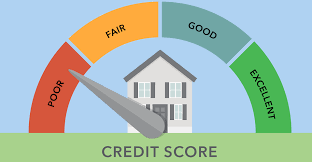Buying a home is a key life event, affecting work and self-employment income. However, many struggle to afford their preferred home or build one. Most people take home loans to finance homes, as cash payments are difficult. Home loans are efficient and easy. Home loan approval depends on factors, including CIBIL scores. Although not the only factor, CIBIL scores significantly impact the process. This blog post explores credit scores’ influence on getting a mortgage.
What Is A Credit Score?
A credit score, a numerical value, is calculated from the information in a person’s credit report and gives an overall summary of that person’s credit worth. It measures the repayment capacity of an individual loan repayment, thus giving a measure of credibility on the part of the lender. This means a higher score symbolises the borrower’s creditworthiness and a lower risk for the lenders. Credit scores are usually given on a scale of 300 to 900. Before applying, requesting your credit report and seeing whether you meet the requirements to be granted a loan is recommended.
Why Does A Home Loan Require A Credit Score?
Applicants seek home loans, and lenders weigh their creditworthiness. Lenders consider many factors to ensure loan repayment. They must get back principal and interest over the loan period. Credit score depends on major aspects like repayment history. A good credit rating benefits borrowers, as it assures creditors of timely repayment.
A borrower with a higher credit score can get a cheaper interest rate. Banks distinguish between high-credit-score borrowers and low-risk customers, negotiating friendlier terms. Individuals with scores below 700 can get loans, but they pay higher interest rates each month.
Other factors applicable to home loans could be the interest rate, the borrower’s income, and the Debt-to-Income (DTI) ratio. A good credit score is one of the most critical aspects of a viable contender. Ideally higher, the better.
In What Ways Can A Borrower Raise Their Credit Rating?
If credit scores fall short, borrowers can take steps to improve them later. Paying on time is key to enhancing your credit score. Late payments cost citizens dearly in credit score terms. Avoid frequent credit card use and pay statements in full monthly. Lenders view high credit balance holders as high-risk customers.
Another technique for improving one’s credit score is to review the credit report and then dispute the credit reporting agency whenever there is a mistake. It is important to note that mistakes in credit reports are not a rarity. Fixing them is certainly possible.
Buying a house requires understanding what a home loan is and the meaning of credit score. A home loan is borrowing money from a lender to purchase property, using it as collateral. Credit scores greatly impact eligibility and interest rates, with higher scores meaning better terms and lower rates.

